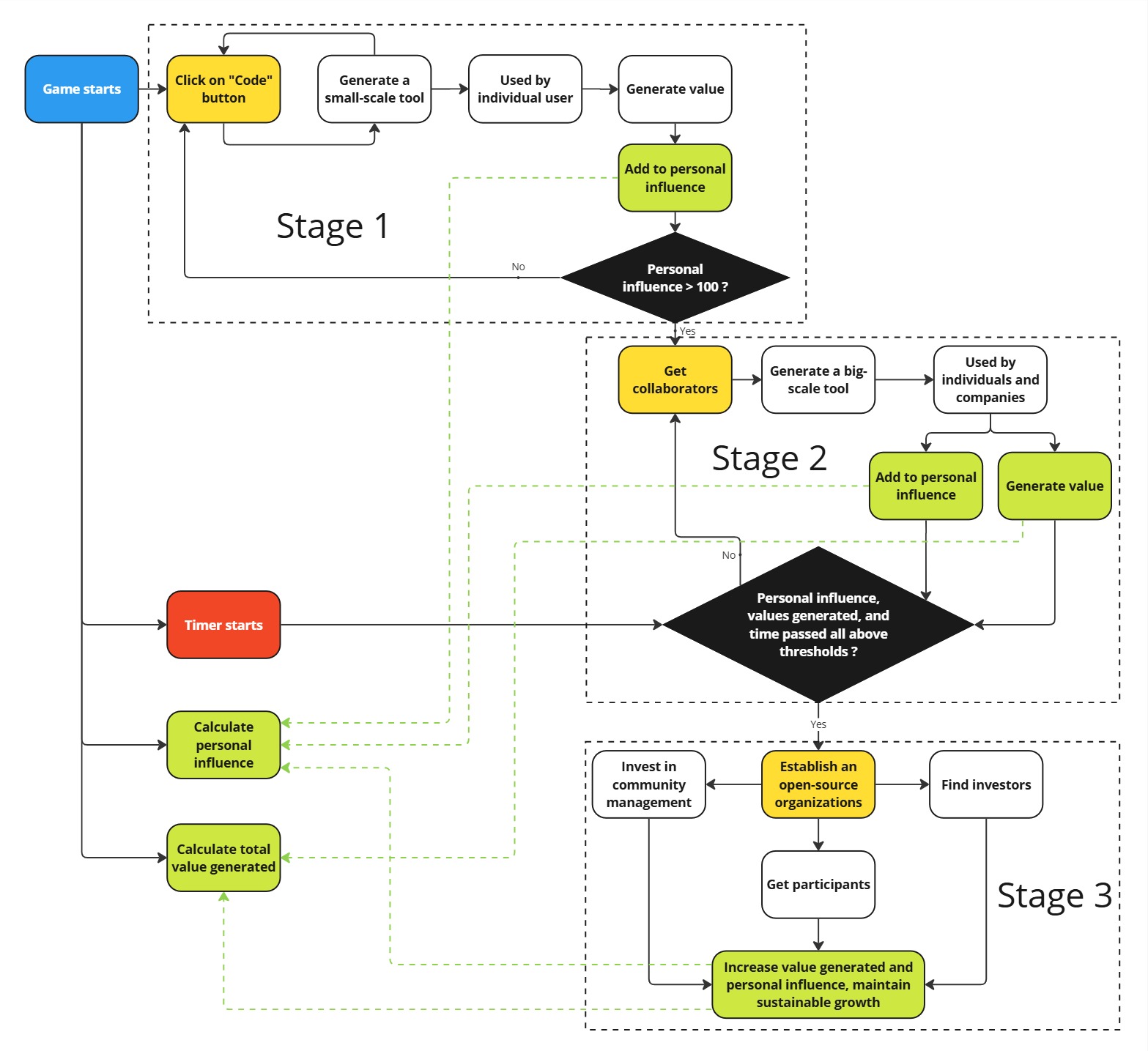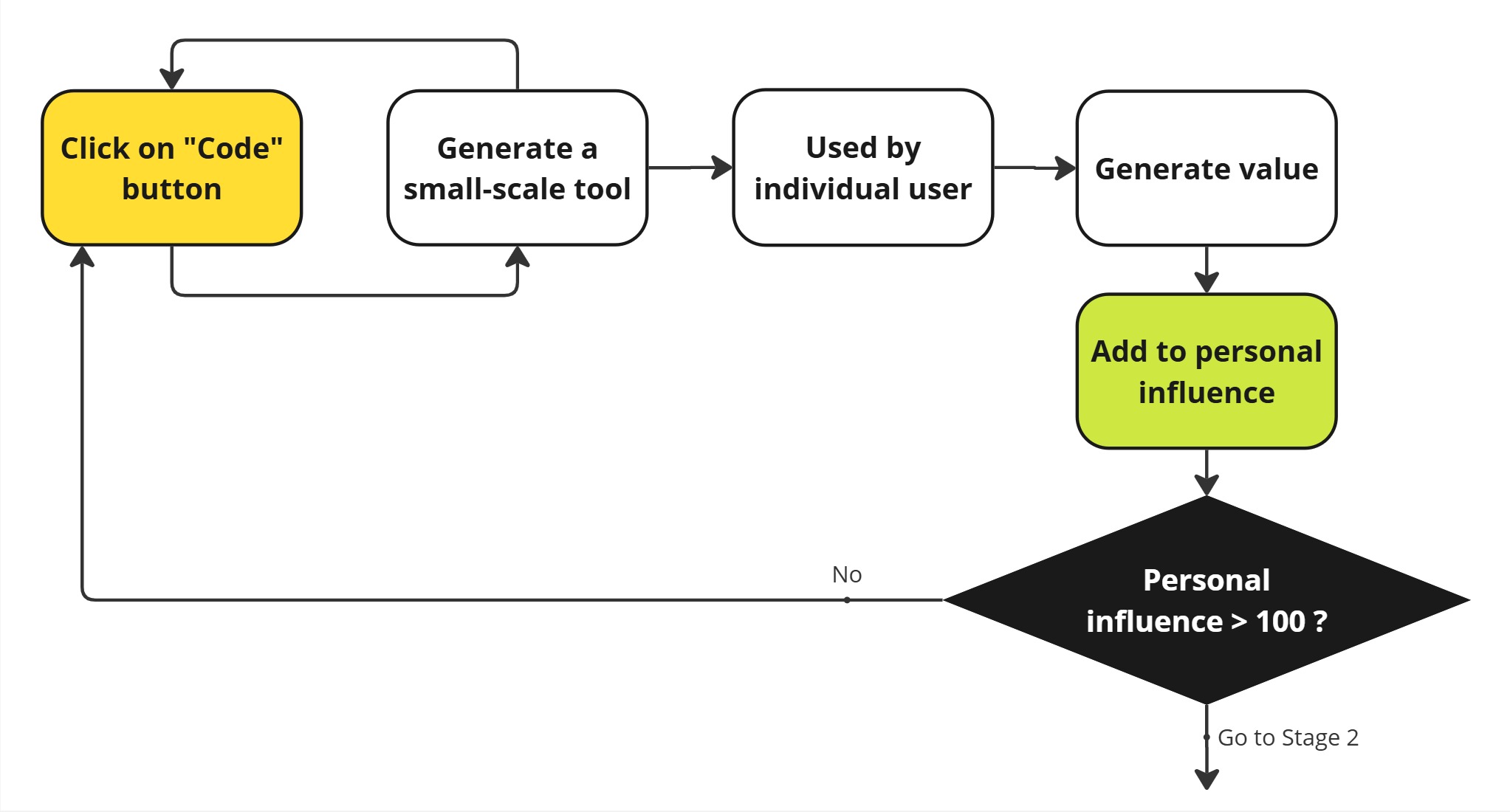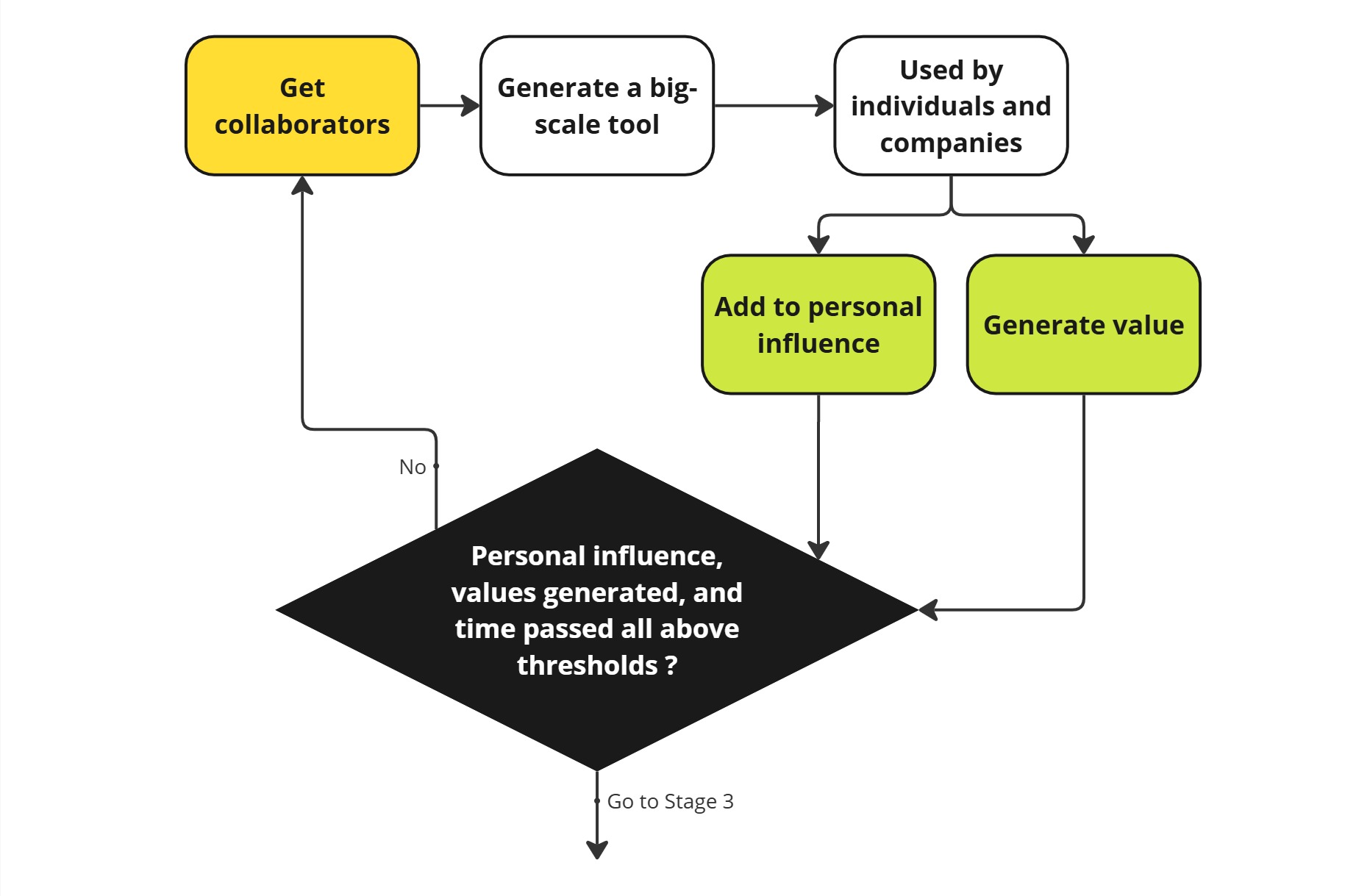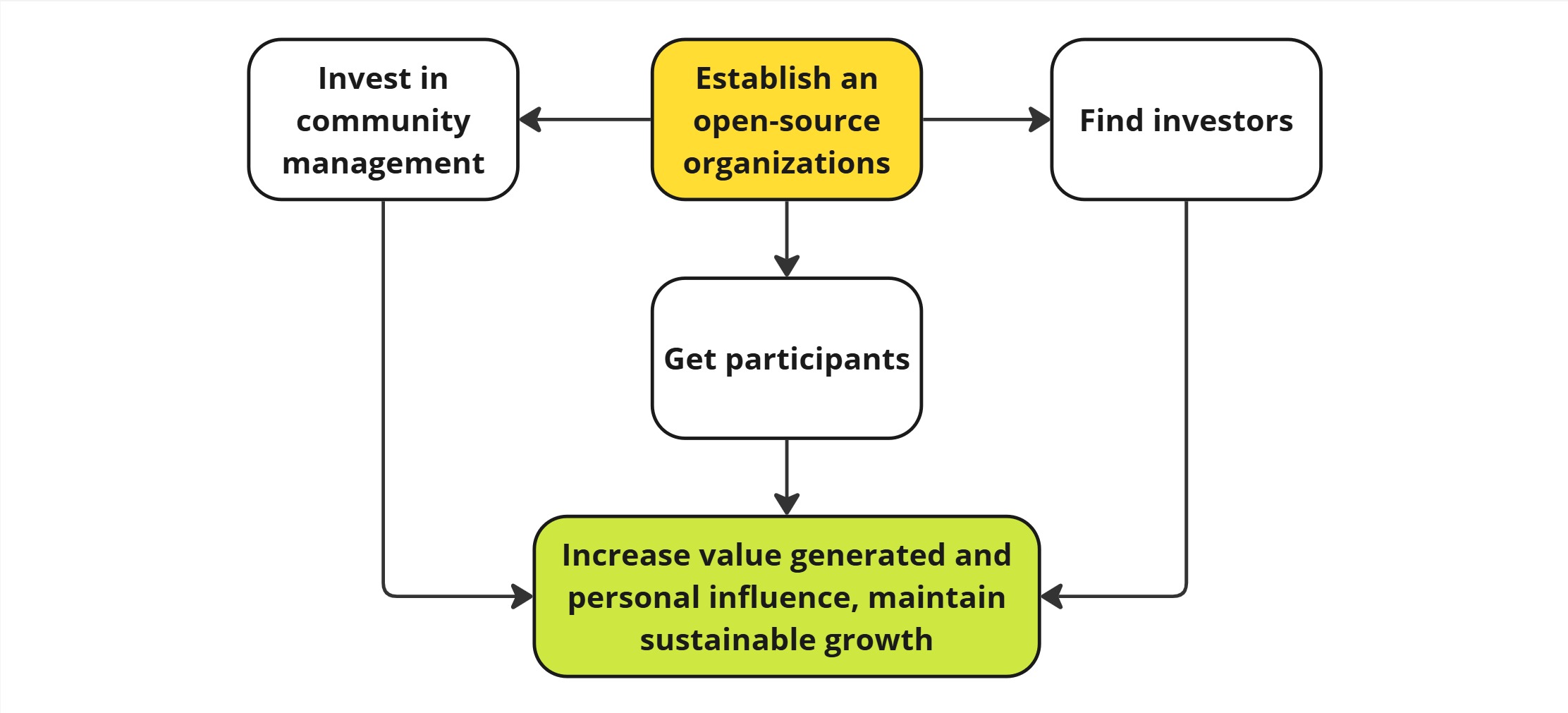Week 1: Ideation
Jan 31, 2025
Blog series: Bazaar.log (IDM Thesis Project)
This week, I presented my idea in class, built the project website, and fleshed out my idea into an incremental game with a more detailed storytelling. I've also created a Game Design Document with game design details and a project plan.
Link to Week 1 PresentationLink to Game Design Document (work in progress)
Link to Project Plan
Project Idea
Concept
The aim of the incremental game is to introduce the evolution process of the open-source ecosystem from decentralized individual contributors to a structured organization, and imagine how incidental events like GenAI emergence will affect this process.
The game is designed for people who want to learn about the open-source ecosystem and speculate about its future. By developing this game, I want the audience to feel the indispensable and unique values of the open-source ecosystem, as well as the challenges and opportunities facing it.
Game Narrative
The game will be a single-player incremental game. In this game, the player gradually evolves from a programmer to an open-source organization founder. There are four major events in the game: 1) emergence of the Internet, 2) tech companies oppose open-source concept, 3) tech industry accepts open-source, and 4) emergence of GenAI. There will be a series of sub-events for each major event, and the tasks for players at each stage are 1) creating open-source tools and 2) optimizing personal influence, speed of value generation, and/or investment.
I have included a table of game narrative with more details in the Game Design Document.
Game Structure

Diagram of the incremental gameplay design.
To immerse the player in the the open-source ecosystem evolution, they will take on the role of a code contributor, actively shaping its growth. Throughout the game, players will make key decisions that influence the development of projects, collaborations, and the overall narrative, driving the ecosystem forward.
There are 3 stages in the game.
At this first stage, the player act as an individual programmer working on small-scale open-source tools. These tools are usually for own purposes, but other users on the Internet might use them as well. Everytime when other users use the tools created by the programmer, the programmer's personal influence increases.
When personal influence is high enough, the game progresses to Stage 2.

As programmer's personal influence increases, they can collaborate with other programmers to develop larger tools with more complex functions. However, collaborators have different skills and levels. Players can choose whether to cooperate with them, but cannot control whether collaborators leave.
When the total value generated is high enough, progress to Stage 3.

When the total value generated is high enough and there are enough collaborators, there will be investors interested in investing the projects. With these investments, the player can choose to establish open-source foundations to further speed up the value generation.

Aside from the progressions above, events will ocassionally occur and impact the system. For example, GenAI emergence can lead to a lack of contributors in foundation or a decreasing investment. The player will be provided with several options to deal with the challenges or opportunities brought by the events, and the choices will affect the system's evolvement.
More details are included in the Game Design Document.
Project Plans
- Plan A: finish developing the game with complete storytelling, progression logic, AI integration, game art and UI, badge system, and store system.
- Plan B: if time is limited, leave out the badge system and store system, and use royalty-free game assets by others.
- Plan C: at the very least, finish the game narrative and progression logic with minimal UI.
Weekly project plan: Project Plan